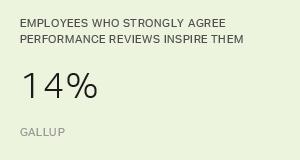I recently sat down with a leadership team who was deciding whether their company would go agile. They were debating the potential risks: Are our employees talented enough? Will they take ownership? Can they learn how to think in systems? Do we have the collective courage for this? How many people are going to quit?
In many ways, going agile is as big an organizational change as it gets, especially in today's world where much of it involves digitization and technological advancement. Agile affects everything from employee autonomy to team flexibility. It involves breaking down silos and changing the very way employees think and communicate.
And what I could hear underneath the surface of the discussion was fear -- a totally natural and expected reaction to uncertainty, vulnerability and risk. The bigger the change, the greater the potential for fear.
And that was the real danger for the organization -- acting out of fear. Studies show that people make poor decisions when they act out of fear. Essentially, when humans panic they stop playing to win and they start playing to not lose.
When we feel afraid, our primitive drive to survive, protect and defend ourselves (and the status quo) dominate all other considerations. Every time.
These leaders needed to not only find courage themselves, they also needed to find a way to navigate around the fight-or-flight reaction of their employees -- and the likely responses that can include sabotaging the change, disengaging from work or leaving the company.
To challenge this primitive fight-or-flight mindset, the leadership team had to answer two core questions for their employees:
- Why us? Why are we the right organization for this change?
- Why me? Why am I the right person for this change?
In other words, "Do I believe this change will succeed?" And, "Does my company believe I am the person who can make it happen?"
Explicit or not, every one of your stars is asking this question in their self-talk. And they need that question answered over and over again in order to give their best selves to an agile organization.
Gallup has identified four needs of followers, all of which combat fear: trust, compassion, stability and hope.
Stability and hope can be found in the answer to the question, "Why us?" Followers need leaders who provide credibility in our collective future, despite uncertain times. They also need leaders who can provide an optimistic and inspiring vision that makes winning believable.
Trust and compassion can be found in the answer to the question "Why me?" Trust goes two ways: Employees need to know that their leaders can be counted on -- and they need to know their leaders count on them. When employees know the company believes in them, they know leaders genuinely care about them as people and see their potential for success.
So how can leaders identify and address the behavioral risks that accompany becoming an agile organization?
Thoroughly and regularly address the question, "Why us?"
- Remind your team how you've won in the past against similar odds. Stories of "wins" should be shared often and everywhere. Embed them in your organizational mythology.
- Imbue change with purpose and meaning. Think beyond company survival and state why the world needs you or "us" to succeed.
- Identify your organization's unique strengths and show how your tribe is uniquely positioned to be successful with this change. It may be your asset base, your people, market position or financial strength. Find what gives you the edge and repeat it endlessly.
Thoroughly and regularly address the question "Why me?"
- Enable each person to see their unique value and strengths. We are never more powerful than when we are doing what we do best. The first step to extraordinary success is knowing what our unique contribution to the world is and doubling down on it.
- Train managers to connect employee strengths to change initiatives. All too often we communicate change as something people will just have to accept and get over. Why not instead help them see how their talents are critical to a successful outcome?
- Share stories of individuals who leveraged their strengths to achieve unlikely wins for your organization. People want to feel that their job is important and that they can make a difference. Sharing these individual success stories can help people write their own dreams.
When we focus on what makes our organization uniquely qualified for success -- and what makes us personally qualified for success -- we switch from a scarcity-based, fearful mindset to an abundance-based, success mindset. At heart, we tell ourselves: We have what it takes. I have what it takes. We are playing to win.
That abundant success mindset is foundational for an agile methodology. Agile organizations require a significant amount of flexibility, honesty and a culture of excellence. These are simply not possible in a fear-driven environment. But when the human need for trust, stability, compassion and hope is met, the mindset shift enables the genius of agile thinking to transform your organization.
Gallup partners with organizations like yours to begin the conversations needed to adapt to the changing workforce:
- Watch this video to discover how other organizations have used CliftonStrengths to boost performance.
- Find out what drives the behaviors of employees around the world and how leaders can increase productivity by reading our State of the Global Workplace report.
- Discover how we can help you transform your organization.
Ryan Pendell contributed to this article.

